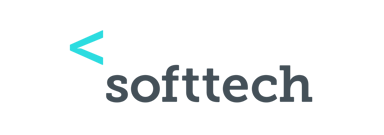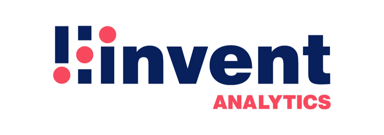HR Analytics
Data is relatively a new term that has been introduced into the world of business. It has made so many operations easier: from finance to product management, and now to human resources.
HR analytics is revolutionizing the way businesses manage their most precious asset - their people. HR analytics gives businesses the power to optimize human resources strategies, make well-informed decisions, and improve employee experiences by utilizing data and advanced analytical methods.
In this content, we will discover the definition of HR analytics, as well as its main features, advantages, and practical applications. Knowing HR analytics can help company leaders and HR professionals discover new ways for productivity and success for their companies, you will definitely want to check it out. Tag along and explore HR analytics. 🕵🏻♀️
What is HR Analytics?
HR analytics, also known as human resources analytics, is a term referring to the use of data analytics for human resources functions. HR analytics might also be called workforce analytics, talent analytics or people analytics. Data analysis techniques are cultivated to improve all kinds of human resources functions, from legalities to employee related decisions.
HR analytics play crucial roles for human resources. The data can be gathered through surveys, HRIS (human resources information systems), and feedback from both clients and customers and employees. Sources of data may vary from company to company, as the methods of data collection also can. The data it provides brings insight into your organization’s workforce. These insights drive your processes to their best stage, allowing management to offer the best quality decisions for an organization.
Importance of HR Analytics
The transformation of traditional human resources management into a strategic, data-driven role that propels corporate success requires HR analytics. HR analytics improves decision-making by utilizing data to make sure that plans are supported by facts rather than assumptions.
Human resources professionals may use it to spot patterns and trends in employee behavior, productivity, and engagement, which helps them create recruitment, retention, and development plans that work better and smarter.
It gives information on how well training initiatives work, coordinating them with corporate objectives and raising output levels all around. Additionally, HR can improve the work environment and raise employee satisfaction and performance by examining employee feedback and engagement data.
A comprehensive approach to workforce management is ensured by the integration of HR analytics with other business departments, which aligns HR strategies with more general business goals. The power of HR analytics to deliver actionable insights that inform strategic choices, streamline operations, and ultimately boost organizational success is crucial in today's cutthroat corporate environment.
Benefits of HR Analytics
Improved Decision Making
Data driven insights deliver improved decisions to your business. Improved decision making processes enhance and support your human resources strategies, allowing you to achieve optimum success in your strategies.
Efficiency
HR analytics streamlines human resources operations. Data insights contribute to necessary alterations within your organization. This provides you with efficient processes, contributing to your company’s growth rate positively.
Time Efficiency and Cost Reduction
HR analytics provide you with optimized operations. Your strategies get easier through latest technology, leveraging its benefits in favor of your human resources team. Through a fast and easy system, your team gains time they would usually spend to handle several tasks. This would also lead to cost reduction with labor regulations, hourly or weekly wages of human resources specialists and more on.
HR Analytics Process and How to Implement It
Asking Questions and Setting Objectives
Ask yourself and your human resources team: why do you need HR analytics? What is the goal you wish to achieve by using it? By asking the right questions, you can set clear goals and objectives and expect great outcomes. Determining the right business objectives will help you get aligned with the right HR analytics strategies.
Data Selection, Integration and Managing
After you set objectives, you will need to select the right tools in order to conduct data analysis. Data selection, installing, integration and management is the most important part of HR analytics. The data you have gathered from your team through different methods create the data pool you will work with. Your team will select and organize the data to process later on, in accordance with your research objectives.
Your human resources team will process the data. Skilled professionals will deliver top notch results through data analysis, resulting with the best practices. While using HR analytics as a practice, make sure you adhere to regulations. Data never lies, and you can use it for your advantage with the right positioning. 🕐
Final Thoughts
For a modern company, HR analytics is a crucial element that may greatly improve decision-making, streamline HR practices, and match team initiatives with corporate objectives. Businesses may enhance hiring, increase employee engagement, and promote a continuous improvement culture in your work place by utilizing data.
The potential for HR analytics will only increase with the advancement of technology, offering even greater power and deeper insights to your human resources departments. Adopting HR analytics makes the HR department more responsive and dynamic while also increasing efficiency and cost savings. The moment has come to investigate and fund HR analytics, which turns data into useful knowledge that advances your company.
Want to learn more? Visit Hirex – your go-to guide on everything HR, recruitment & more.
Get a demo
- Quickly find top candidates with smart application management
- Improve team collaboration using built-in communication and workflows
- Offer a smooth candidate experience to strengthen your employer brand
- Count on 24/7 support for a hassle-free hiring process
- Quickly find top candidates with smart application management
- Improve team collaboration using built-in communication and workflows
- Offer a smooth candidate experience to strengthen your employer brand
- Count on 24/7 support for a hassle-free hiring process
"We truly felt the speed difference. Everything was smoother, and candidate feedback was much more positive. It made our jobs easier."

Trusted by 100+ teams
Get Informed,F.A.Q.
Revolutionize your hiring process with our transformative Applicant Tracking System (ATS.)
Suggested keywords
What is Cultural Fit?
Let's talk numbers - 89% of employers put cultural fit at the top of their hiring checklist. Pretty huge. But wait a second... what exactly does cultural fit mean in today's fast-moving workplace?The ...
Employee NPS Benchmarks
An Employee NPS benchmark is basically a way to see how your company’s employee satisfaction stacks up against others. It helps turn your eNPS score into something useful by giving it context. 📌You'r...
Salary Benchmarking
Salary benchmarking is basically figuring out if what you're paying your team makes sense compared to what others are offering for similar roles. It’s like checking the going rate before you buy somet...















